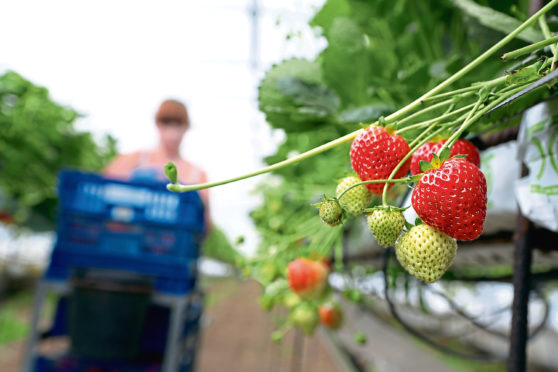Long-term reliance on migrant workers has been a “sticking plaster” for labour shortages across Scotland’s farms, MPs heard today.
Westminster’s influential Scottish Affairs Committee heard evidence towards its inquiry into the future of national agriculture post-Brexit.
Banff and Buchan MP David Duguid was told by one industry leader that farming had lost domestic workers to industries for which there is a perception of “far better working conditions” and “far better returns”.
And the Scottish Conservative heard from national figures that leaving the EU with a deal would prevent a temporary tariff regime in the event of a “no-deal” Brexit.
Mr Duguid said the UK Government is seeking engagement on its white paper on immigration from industries which rely on EU and non-EU workers.
>> Keep up to date with the latest news with The P&J newsletter
He asked the panel: “What, if anything, can be done to encourage domestic workers to take on these jobs. What has the sector been doing in recent years to reduce their reliance on migrant labour?”
Willie Campbell, council member at First Milk, said other industries have benefited from a long-term disposition towards migrant labour.
He said: “We need to treat our food-producing industry with greater respect, and make sure there is money in there for the skills and the next generation to come along.
“We’ve been putting a sticking plaster on a very big wound.”
Scott Henderson, vice-chairman of the Scotch Beef Association, said there is currently a focus in the immigration white paper on seasonal workers on the likes of fruit farms.
This would not help long-term gaps in the dairy and red meat areas of agriculture, as they are year-round.
He added: “There are seasonal workers in some industries but the issue in others is a general 12 months a year shortage of labour.”
